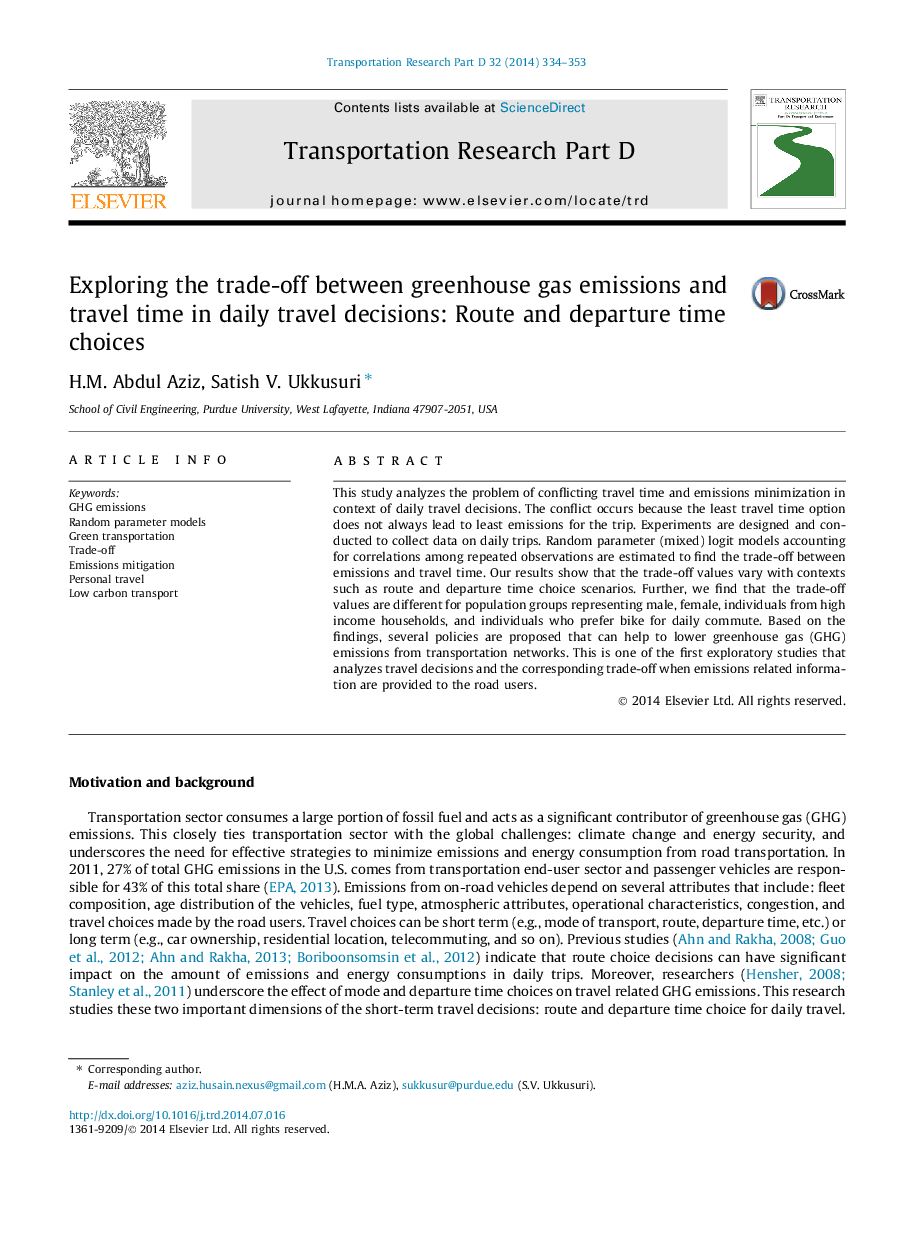| Article ID | Journal | Published Year | Pages | File Type |
|---|---|---|---|---|
| 7500974 | Transportation Research Part D: Transport and Environment | 2014 | 20 Pages |
Abstract
This study analyzes the problem of conflicting travel time and emissions minimization in context of daily travel decisions. The conflict occurs because the least travel time option does not always lead to least emissions for the trip. Experiments are designed and conducted to collect data on daily trips. Random parameter (mixed) logit models accounting for correlations among repeated observations are estimated to find the trade-off between emissions and travel time. Our results show that the trade-off values vary with contexts such as route and departure time choice scenarios. Further, we find that the trade-off values are different for population groups representing male, female, individuals from high income households, and individuals who prefer bike for daily commute. Based on the findings, several policies are proposed that can help to lower greenhouse gas (GHG) emissions from transportation networks. This is one of the first exploratory studies that analyzes travel decisions and the corresponding trade-off when emissions related information are provided to the road users.
Keywords
Related Topics
Life Sciences
Environmental Science
Environmental Science (General)
Authors
H.M. Abdul Aziz, Satish V. Ukkusuri,
